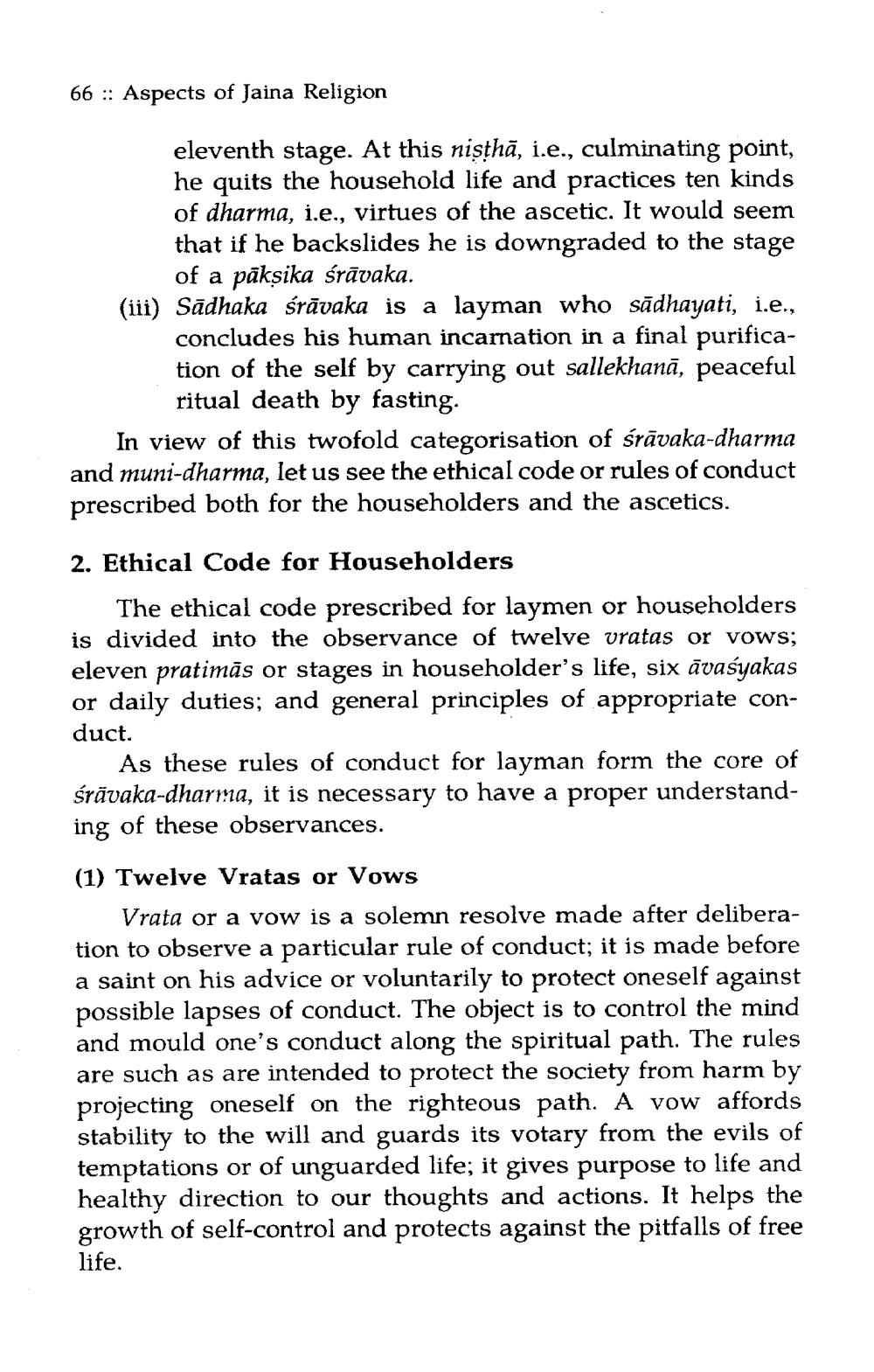________________
66 :: Aspects of Jaina Religion
eleventh stage. At this nisthā, i.e., culminating point, he quits the household life and practices ten kinds of dharma, i.e., virtues of the ascetic. It would seem that if he backslides he is downgraded to the stage
of a pāksika śrāvaka. (iii) Sādhaka śrāvaka is a layman who sādhayati, i.e.,
concludes his human incarnation in a final purification of the self by carrying out sallekhanā, peaceful
ritual death by fasting. In view of this twofold categorisation of śrāvaka-dharma and muni-dharma, let us see the ethical code or rules of conduct prescribed both for the householders and the ascetics.
2. Ethical Code for Householders
The ethical code prescribed for laymen or householders is divided into the observance of twelve vratas or vows; eleven pratimās or stages in householder's life, six āvasyakas or daily duties; and general principles of appropriate conduct.
As these rules of conduct for layman form the core of śrävaka-dharma, it is necessary to have a proper understanding of these observances.
(1) Twelve Vratas or Vows
Vrata or a vow is a solemn resolve made after deliberation to observe a particular rule of conduct; it is made before a saint on his advice or voluntarily to protect oneself against possible lapses of conduct. The object is to control the mind and mould one's conduct along the spiritual path. The rules are such as are intended to protect the society from harm by projecting oneself on the righteous path. A vow affords stability to the will and guards its votary from the evils of temptations or of unguarded life; it gives purpose to life and healthy direction to our thoughts and actions. It helps the growth of self-control and protects against the pitfalls of free life.




